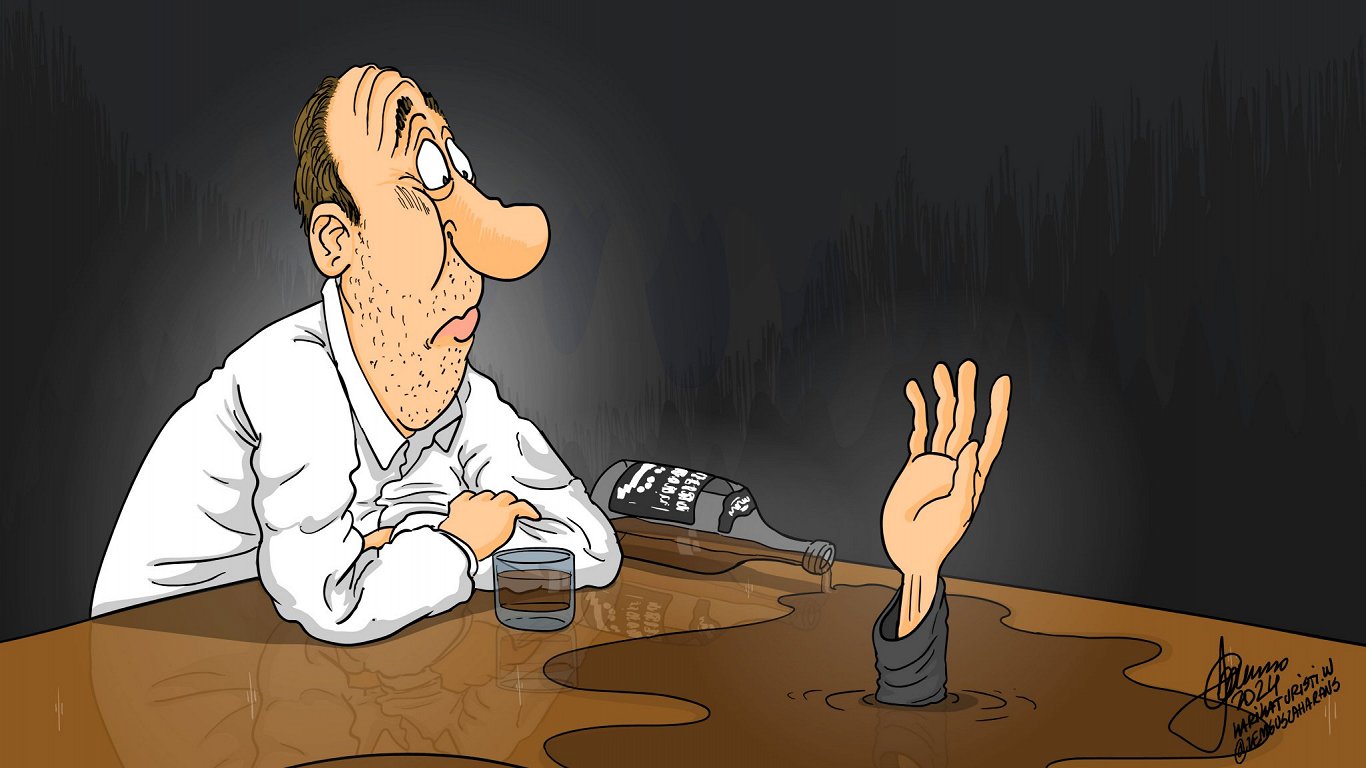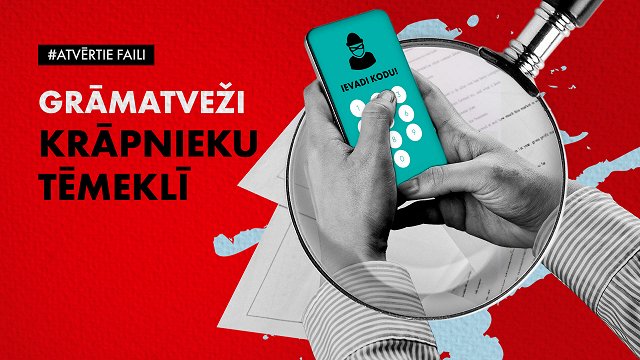An intoxicated employee may be reprimanded or sent to a medical facility to determine the blood alcohol concentration. At the same time, existing legislation does not state clearly enough that drinking is not allowed at the workplace, so the solution of the situation lies largely on the shoulders of the employer, Ivars Vanadziņš, Director of the Institute of Occupational Safety and Environmental Health of Riga Stradiņš University, told the show.
One of the show's viewers, 'Ināra' prompted the story by writing that some of her colleagues regularly drink several bottles of alcoholic beverages during the course of the working day. By clocking-off time, the speed of their movement and speech indicates intoxication: "It is even difficult to assess whether they have been drinking, because there is no smell of alcohol, but by their movement and speech, it is clear that something is not right," said Ināra.
Dace Stivriņa, head of the Customer Support Department of the State Labor Inspectorate, admitted that, perhaps surprisingly, neither the labor law nor the labor protection regulations determine how to act in such a situation.
"First of all, the employer is responsible for the working regime in the institution, the company. Therefore, he [or she] should establish the procedure in the internal regulatory acts regarding the behavior that the employee can and cannot indulge in," explained Stivriņa.
If one colleague sees another doing something that does not correspond to the performance of work duties, the supervisor should be notified and the employer should react to it.
"The employer can approach employees who are in such a state or who consume cocktails with added alcohol. They can request an explanation from these employees, as well as decide on the issue of applying disciplinary punishment and a note or reprimand. Also, the employer can send employees to a medical institution to find out how much alcohol concentration is in the blood," Stivriņa suggested as possible courses of action.
The employer can offer to take the employee to a medical facility, but cannot forcibly take him [or her] there: "Also, the employer could set a time by which they must go to the medical facility today, and tomorrow show the results."
If the situation becomes critical and may endanger the work process and other employees, then the state or municipal police, who have appropriate breathalyzers, can be called. If such cases are repeated, it is considered a gross violation and the employer may justifiably decide to dismiss the employee or – in this case – employees.
"Practice shows that there are different situations. Indeed, sometimes an employee has to take some kind of medication with a small dose of alcohol. And it could be that the employee looks in a state of alcohol intoxication, but his appearance and behavior have been influenced by something else," admitted Stivriņa.
Ivars Vanadziņš, director of the Institute of Occupational Safety and Environmental Health of Riga Stradiņš University, stated that the use of alcohol in the work environment is a gray area, as no law specifically states that drinking or smoking is prohibited at work, "So it's left up to the employer as to how much they're willing to tolerate."
In a study published by the OECD in 2022, Latvia was recognized as the most heavy-drinking country in the European Union. The data compiled by the Ministry of Health show that the national economy loses 1.8% of gross domestic product (GDP) annually due to alcohol consumption. In 2023, the volume of alcoholic beverages purchased in Latvia was 12.58 liters per inhabitant.
"People of working age drink, most of whom work. If they regularly drink a lot and have a hangover in the morning, it means that there is some blood alcohol level in the background. A large number feel the temptation to do it during the day as well," said Vanadziņš.
If a person is under the influence of alcohol, it is only a matter of time before an accident can happen with very serious consequences. Inga Landsmane, a doctor at the Riga Psychiatry and Narcology Center, stated that excessive alcohol consumption is when you drink a large amount at one time and there is a desire to continue this process: "This is evidently a step towards wanting to drink more and more often and consume more and more alcohol at one time."
There is an ingrained belief in society that so-called 'soft' alcoholic drinks with a lower alcohol content than 'hard' spirits are not harmful: "There are all kinds of myths rooted in society to justify their actions and drinking habits. Even small doses of strong alcoholic drinks can cause harm over time, just like the 'soft' alcoholic drink that initially you can drink much more of."
Experts emphasized that there is no such thing as a safe dose of alcohol. Likewise, drinking alcohol while performing work duties cannot be the norm.
"It is normal not to be under the influence of alcohol at work. We, both in this and in many other areas of life, simply normalize what is wrong: everyone does it," said Vanadziņš.
Dr. Landsmane emphasized that alcohol is an addictive substance that can be dangerous if used frequently and in large quantities.
"Alcohol addiction is a chronic disease that can certainly be treated, but like any chronic disease, it is impossible to completely cure it," emphasized the doctor.



























